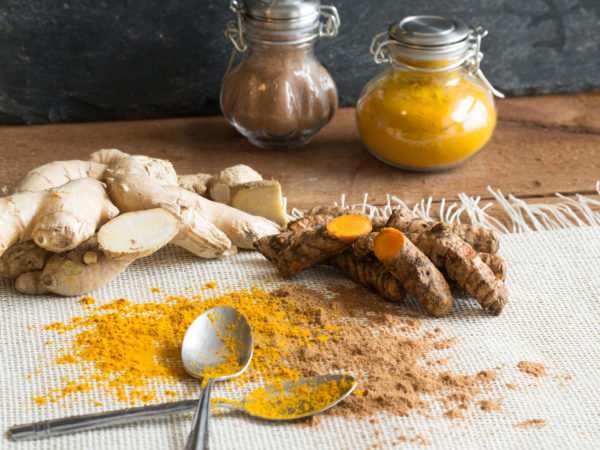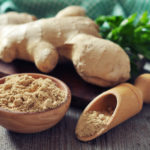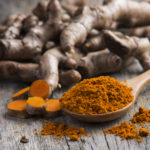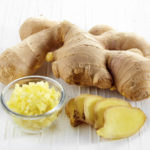Are There Natural Remedies for Multiple Sclerosis?
I have been suffering from multiple sclerosis (MS) for several years. Do you have any suggestions for natural remedies to help someone like me?
Andrew Weil, M.D. | June 3, 2020

Multiple sclerosis (MS) is one of the most baffling of all diseases – we know very little about what causes it and what factors influence its progression and outcome. MS begins with localized inflammatory damage of the myelin sheaths surrounding the nerve fibers due to an attack by the immune system. The resulting damage interferes with nerve impulses and can lead to symptoms such as muscle weakness, loss of vision, and a variety of other neurological impairments.
Although considered an autoimmune disease, it is not clear what causes the immune system to attack nerve sheaths. MS is more common among those who live in northern latitudes and uncommon in those near the equator This suggests that vitamin D, which the body synthesizes in response to direct sunlight, may play a protective role, but definitive research has not established a link. Additionally, scientists are unable to explain why there are so many different forms of MS, why some people have transient symptoms that never return, while others experience cycles of exacerbation and remission. In some people MS is relentless, leading to complete disability and death.
Drugs called beta-interferons including Avonex, Betaseron, or Rebif, glatiramer acetate (Copaxone), mitoxantrone (Novantrone), and natalizumab (Tysabri), have become the standard treatment for MS patients, especially those with the remitting variety. While these drugs can slow progression of the disease, they are expensive and can lead to unpleasant side effects. Other drugs available include the following:
- Fingolimod (Gilenya): A new class of medication believed to act by retaining some white blood cells in the lymph nodes, preventing them from passing into the central nervous system. Following reports of deaths among some patients taking Glineya, the FDA now requires heart-function tests and monitoring before the drug is taken.
- Methotrexate, azathioprine (Imuran), intravenous immunoglobulin (IVIg) and cyclophosphamide (Cytoxan) may be prescribed if other drugs are not working well.
- Steroids may be used to decrease the severity of attacks and other drugs may be prescribed to reduce muscle spasms, urinary problems, mood or behavior symptoms, and fatigue.
I like to work with MS patients because of the disease’s variability and potential to go into remission, as well as its responsiveness to stress reduction, mind/body treatments and changes in lifestyle. Here’s a list of lifestyle and dietary changes I recommend for my new patients. Experiment with them to see what works best for you:
- Decrease protein toward 10 percent of daily caloric intake. Replace animal protein as much as possible with plant protein.
- Eliminate milk and milk products, substituting other calcium sources.
- Eat organically grown fruits and vegetables as much as possible as well as organic products made from wheat and soy.
- Eliminate polyunsaturated vegetable oils, margarine, vegetable shortening, all partially hydrogenated oils, all foods (such as deep-fried foods) that might contain trans-fatty acids. Use extra-virgin olive oil as your main fat.
- Increase intake of omega-3 fatty acids from fish, walnuts, or flax and hemp seeds.
- Eat more fruits and vegetables.
- Eat ginger and turmeric regularly.
- Take acidophilus culture and psyllium if constipation is a problem, or use the ayurvedic herbal bowel regulator, triphala.
- Take my antioxidant and daily multivitamin formula and a B-50 complex vitamin, and a multi-mineral supplement daily.
- Take 5 grams of soy lecithin granules daily (store this in the refrigerator).
- Take 30 milligrams of coenzyme Q10 (CoQ10) two or three times a day.
- Do some kind of light aerobic exercise on a regular basis. Choose something you enjoy but do not push yourself to the point of exhaustion.
- Visualization, meditation, and hypnotherapy can redirect your mental energies in positive directions.
- Experiment with traditional Chinese medicine and Ayurvedic medicine from qualified practitioners.
Andrew Weil, M.D.
Source:
Kassandra L. Munger et al, “25-Hydroxyvitamin D deficiency and risk of MS among women in the Finnish Maternity Cohort.” Neurology, September 13, 2017, doi: 10.1212/WNL.0000000000004489














